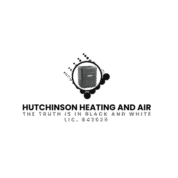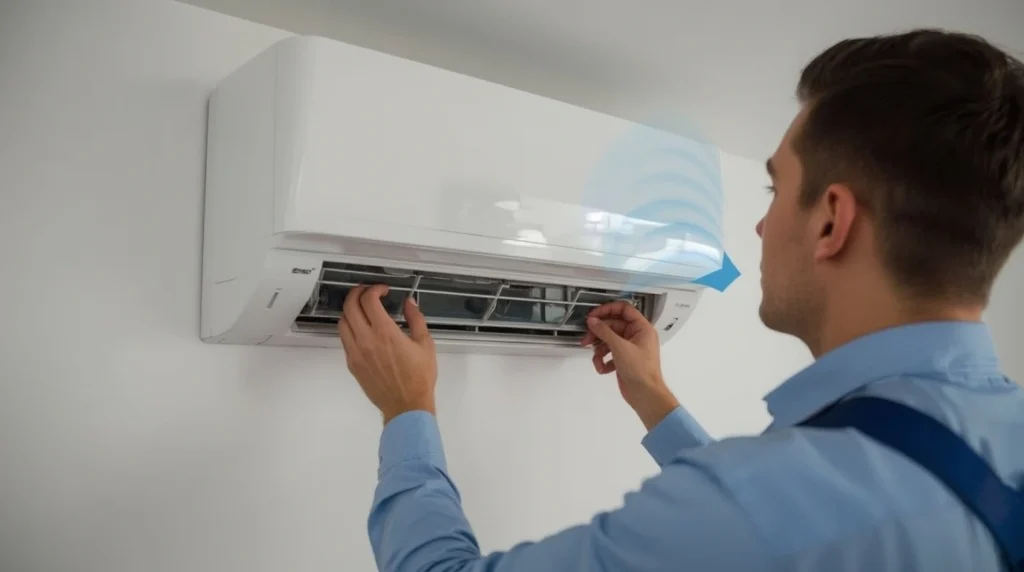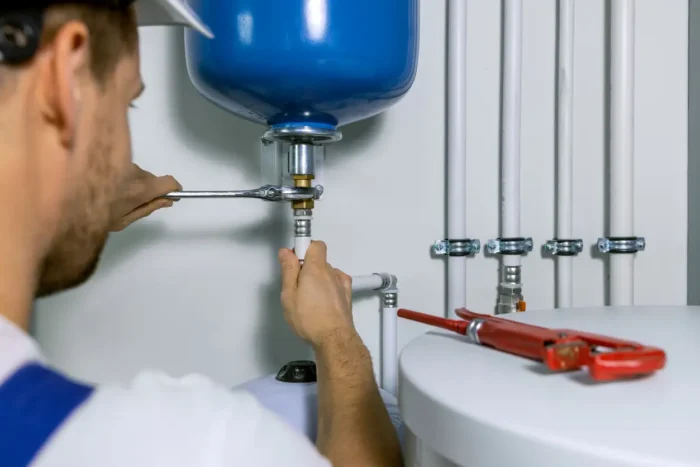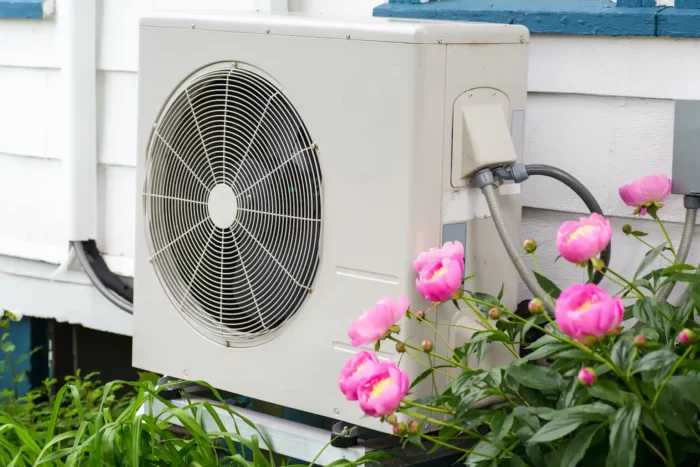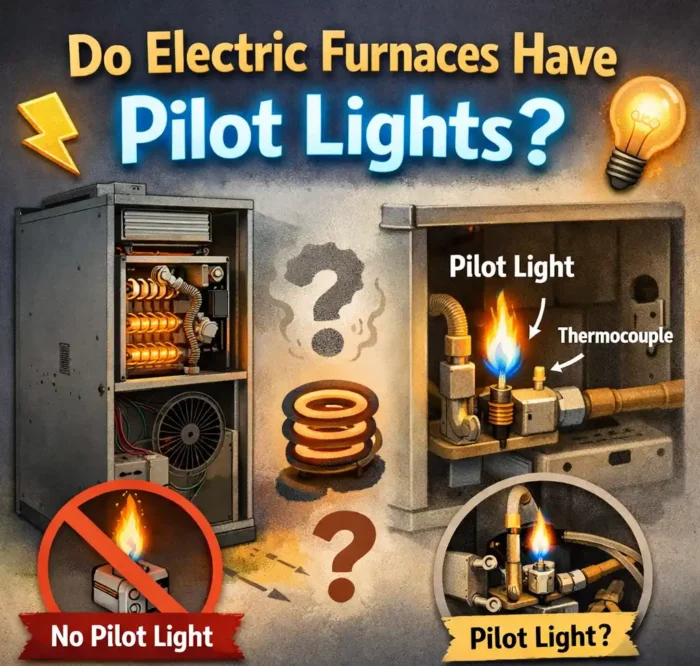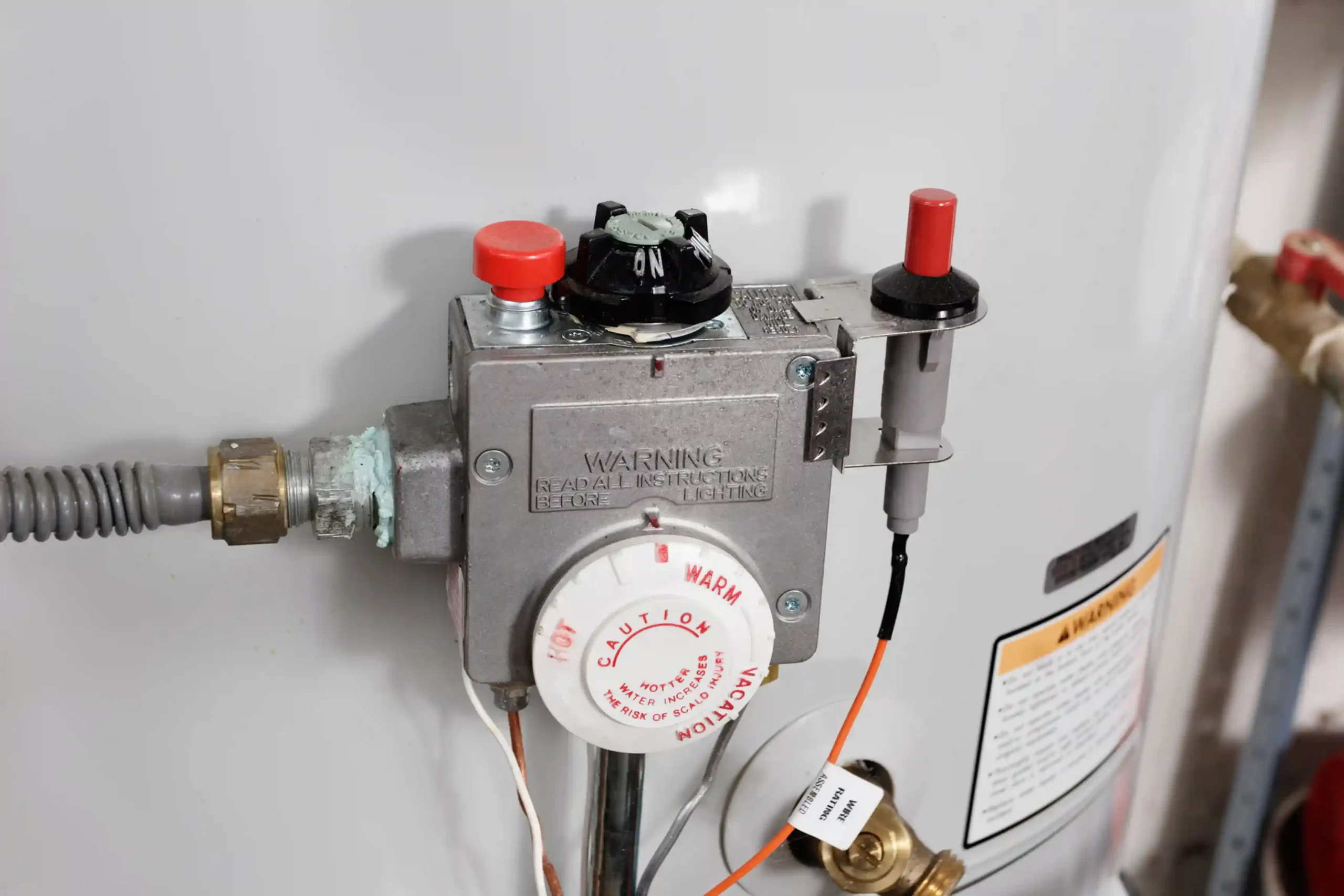During hot summer days, an air conditioner is a big blessing. But what happens when it suddenly stops cooling? I know it’s frustrating. If you are facing the same situation and wondering, why is my air conditioner not blowing cold air? Then you are not alone. It is estimated that 20% of Americans face the same issue during the summer. In this post, we will explore the most common reasons why your AC is not blowing cold air, along with easy solutions.
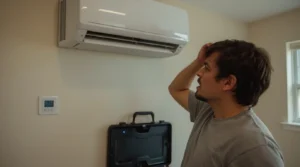
Table of Contents
ToggleWhy it happens? Common reasons and solution
There may be several reasons why your AC is not cooling. Some are given below
Dirty air filter
- The simplest reason why your ac is not blowing cold air is a dirty air filter. Filters prevent the entry of dust, pollen, pet hair and other trash into your system. These particles build up over time and block up easy movement of air, decreasing the cooling effect.
- Switch off your air conditioner, remove the filter, and wash it with mild soap and water. Please leave it dry thoroughly and then place it in its place. In the case of a disposable filter, replace it with a new one. To maintain efficient airflow and cooling clean the filter after every 2 months.
Low refrigerant
- The most common cause of your ac working but not cooling is a low refrigerant level. For example, chemical substances such as R-410A or older R-22 run in coils as refrigerants and absorb the heat of your room to produce a cooling effect.
- When the coils become corroded or old, the levels of refrigerant decrease due to leakage. These low levels prevent your ac from blowing cold air. First, fix the leak and then refill the refrigerant to ensure proper cooling.
Malfunctioning thermostat
- There are cases where your thermostat is the problem behind your air conditioner not blowing cold air but running. A thermostat is a device that controls the temperature of your ac by sensing the outside temperature. When its sensors become dirty or damaged, the system fails to accurately sense the room temperature, and thus, the AC is unable to cool when required.
- Sometimes, a poorly placed thermostat, especially near ovens or windows, may provide wrong readings. Expired batteries can also cause a malfunctioning thermostat. To fix it, replace the batteries, clear the area around the sensors, and place the thermostat in a cool, shady location.
Clogged registers
- Registers are the vent covers that transfer cool air from the air conditioner to your room. Sometimes, these vents get blocked due to dust, furniture, curtains, or a rug, which limits cool air circulation in the room.
- The most effective way to resolve this issue is to inspect all the vents, clear out any obstructions, and clean the covers using either a vacuum or a damp cloth at regular intervals to improve air circulation.
Issues with the outdoor unit
- Your outdoor ac unit consists of two key components: the compressor and the condenser. When one of them is not functioning properly, it may be the reason behind your aircon cooling problem. The compressor pumps refrigerant and recirculates it. When it is broken or overheated, the cooling process stops. The condenser helps remove the heat from the refrigerator.
- When the coils are clogged, or there is no condenser fan, the heat will not dissipate, and your house will not cool down. Regular maintenance and proper ventilation will prevent issues with the outside units and ensure your AC cools properly.
Power issues
- When your ac is not blowing cold air, it may be due to power issues. The compressor or fans may not work due to tripping breaks, blown fuses, dead batteries of thermostats, or wiring problems.
- The first thing you should do is ensure your power supply is working properly. If the issue cannot be easily resolved, consider calling a professional.
When to call a professional
Contact a professional if your ac is not getting cold even after simple troubleshooting. Home repairs may increase the issue, especially in cases of leaking refrigerant, electrical problems, loud noises, frozen coils, and a faulty compressor.
Conclusion
When your air conditioner is not blowing cold air but still running, it may be due to a reason such as a dirty filter, clogged registers, low refrigerant, or sometimes electrical issues. However, such a problem could be resolved by some maintenance. When DIY fails, call the experts AC repair in Murrieta and Temecula and make your system and yourself comfortable again.
FAQs
Why does my ac take a long time to get cold?
It may be because of dirty filters, low refrigerant and under sized ac.
When to replace AC unit?
After 10-15 years of working when it is frequently having cooling problems.
How would I know if my refrigerant has a leak?
Especially when you notice warm air from vents, hissing sounds and long cooling time may be the reason for the leak.
What to do when my ac is running but not cooling the room?
Simple troubleshooting such as cleaning filters, inspecting thermostats and outdoor units. If the problem is still present then call a professional.
Is it safe to clean outdoor units myself?
Yes, you can clean it with a cloth or even with hose from outside. But you will need an expert while cleaning inside the outdoor unit.
